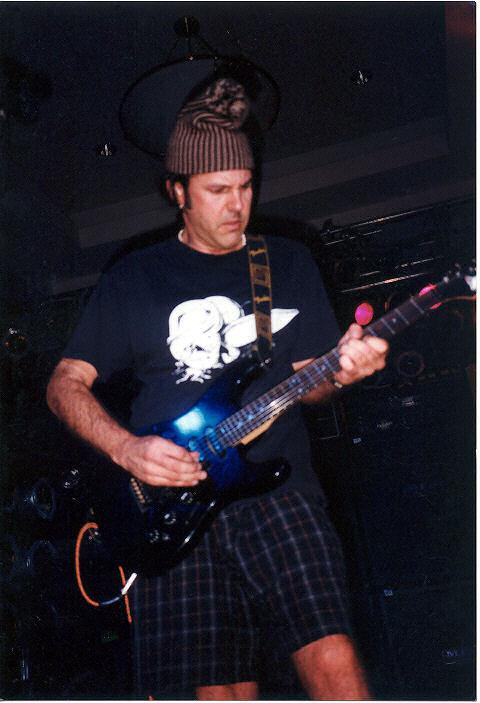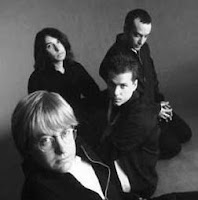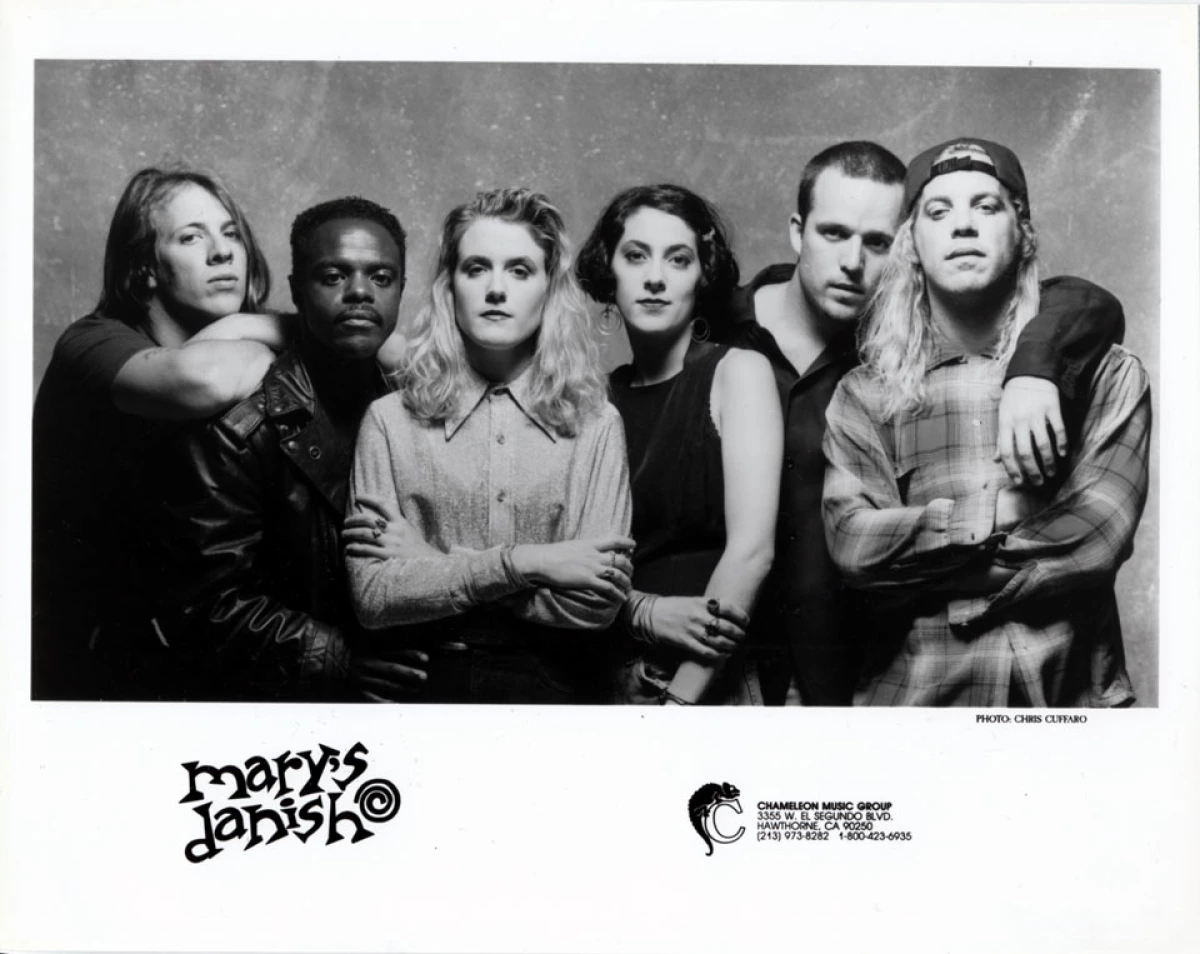I Want It All: A Chat with Michael Kotch of Eve's Plum
Discography:
Envy (550 Music, 1993)
Cherry Alive (550 Music, 1995)
Popular Tracks: Blue, I Want It All, Save a Prayer, Jesus Loves You (Not as Much as I Do)
Eve's Plum were one of the many bands that came out in the '90's during the major-label feeding frenzy but there was something more that separated them from the pack. Frontwoman Colleen Fitzpatrick (now better known as late ‘90s pop dynamo Vitamin C) was dynamic as all get out; one of the most interesting voices of the era. While Eve's Plum have been gone for nearly twenty years, the music still lives in those who always enjoyed it and those who are just discovering it for the first time. Do yourself a favor and go check out these two albums and find yourself enjoying some really solid alt rock from a bygone era. Come back Vitamin C!
Pete Crigler: When did you become interested in music?
Michael Kotch: As a kid always loved music, my parent had an old reel to reel that I would try to make work. I took piano lessons as a kid and then moved to the guitar. But I really didn’t get totally into it until I was about 12 or 13, then I couldn’t put the guitar down.
Pete: How did you meet Colleen and what led to the formation of Eve's Plum?
Michael: I met Colleen at NYU; she was in my Shakespeare Survey II class. Then later, completely coincidentally she answered an ad we put out in the Village Voice looking for a singer. That’s the way we had to do things pre-internet, use newspapers.
Pete: How did you get signed to Epic and what was that like?
Michael: We were playing out and writing and we recorded a few demos. A friend of Colleen’s, Richard Reines who later started Drive-Thru records shot a video for “I Want It All” and it got sent around and the next thing we knew labels were calling us. It was pretty incredible at the time for us, but looking back it’s much more obvious that that was just a first step towards success.
Pete: What was it like recording Envy and Cherry Alive?
Michael:
They were very different experiences. For Envy, we had signed to a
major label and ended up recording at what was then called the Power Station, a
huge expensive studio in NYC.
Much
different than what we had been used to, which was spending overnights in
smaller studios recording demos with our engineer friends. The
concept of taking time to get things right was very novel.
Recording
Cherry Alive - we actually went out to Colleen's parents’ house in NJ
and spent like a month rehearsing and writing in their basement! Then we
cut the basics at a larger studio in NY then moved to a smaller place for
overdubs and vocals, and that was a pretty great vibe.
Pete: Did you guys enjoy your success or was it more than you anticipated?
Michael: Well that’s interesting, from my point of view we didn’t quite hit that mark of “success.” Yes, we put out records, yes we toured, but we never quite broke through in the way we would have liked, for a variety of reasons.
Pete: What was the songwriting process like?
Michael: For Envy we had the songs pretty much ready to go since we'd been playing around for a bit. For Cherry Alive we spent some time writing new stuff, then a lot of time rehearsing. The process usually went with me having a riff or progression, working with Colleen a bit to flesh out her lyrics (she wrote most of them) and then we'd bring it to the band to work out the rest. But sometimes we'd just be jamming on something and Colleen would just improvise and good things would happen. Pretty sure I Want It All happened that way.
Pete: What happened with the first bass player?
Michael: We just had a mutual parting of ways after the first record, nothing major.
Pete: Was the cover of Save A Prayer one of the last things the band recorded?
Michael: Hmm. It may have been, I’m not sure quite honestly! We recorded a bunch of songs in that session and then I remember we did some live recordings after that too.
Pete: What caused the breakup of the band?
Michael: The second record didn’t do as well as we’d hoped, and we received not so subtle hints from our label that they weren’t going to support us with it shortly after it was released. So there was a morale issue for sure. Then my brother Ben the drummer decided he didn’t want to stay with it and that pretty much killed the whole thing, though we did play a number of shows without him.
Pete: How did you come to join Ruth Ruth?
Michael: I had become friendly with those guys while we were touring and Chris Kennedy called me up because he wanted to add a second guitar for touring, and then they just couldn’t get rid of me! For a few years anyway.
Pete: What is everybody up to and do you think there would ever be a reunion?
Michael: Well we do all live in LA now, so if it's ever gonna happen now is the time! I've been writing music for tv commercials for a while now and I actually really like it, there's a puzzle solving quality that keeps me interested. Colleen is a music executive at Netflix, she'd previously been VP Music at Nickelodeon. Theo is working at a music tech company and Ben is also involved in the tech world.
Pete: What do you think of the impact of alternative rock in the ‘90s?
Michael:
Well it definitely changed our lives! I think it was an incredible time
for music, bands were taking chances, the technology was evolving rapidly which
opened up new ways to record. While we weren't punk AT ALL that
documentary "The Year Punk Broke" was something we all were
enthralled with and the general IDGAF attitude was prevalent and potent
and exciting to be a part of.
I love it now when I hear music and can hear direct 90s influences, though it makes me feel super old hahaha.
Pete: What do you hope the band's legacy will be?
Michael:
I don’t know, it was a particular time and place and when I listen now it
brings me back to that time and those places.
There were a lot of great bands and places to play…I hope people who
hear the music can be transported and inspired, and maybe some kid out there
can chop up one of the tracks and turn it into something incredible and
new.





Comments
Post a Comment